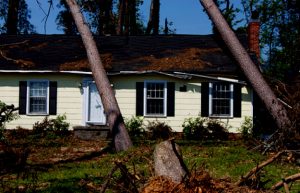Purchasing and owning a home is not easy. While this is a great economic investment, it also comes with a great degree of responsibility. Part of this responsibility is to protect the home with a valuable home insurance policy. Some people might think, “the mortgage is already expensive enough. Why add the additional cost of a home insurance policy?” Well, there are several very important reasons why.
Protect Against Disasters
The number one reason why people should invest in a home insurance policy is that it can protect against disasters. In addition to severe storms, there are also electrical fires and structural problems that could lead to significant home damage. Many families are not able to pay for these expenses out of pocket. This is where a home insurance plan can help.
Theft is Often Covered
Unfortunately, theft is a part of society. Families could have valuable items in their home that they might not be able to replace if stolen. This could include jewelry, clothing, and electronics. With certain types of home insurance policies, loss due to theft might also be covered. This is where it becomes important to read the policy closely to know what is covered and what isn’t.
Required By Lenders
Some lenders even require a homeowner to purchase insurance prior to signing off on the loan. This is because the lender wants to protect their investment in the home as well. If this is required by the lender, it might be helpful to meet with an agent to find the appropriate policy.
Invest in Home Insurance Today
Ultimately, the number of reasons to protect a home with a home insurance policy is endless. These are only a few of the many examples. Do not wait for a catastrophe to strike before investing in a home insurance policy. Get prepared with the safety blanket of a homeowners’ insurance plan
Want to know more? Call us toll free on 0800 600 143 or 392 8264. You can also Whatsapp us at 370 2722 and get a free quote, or visit our web site www.alphadirect.co.bw for more details.








